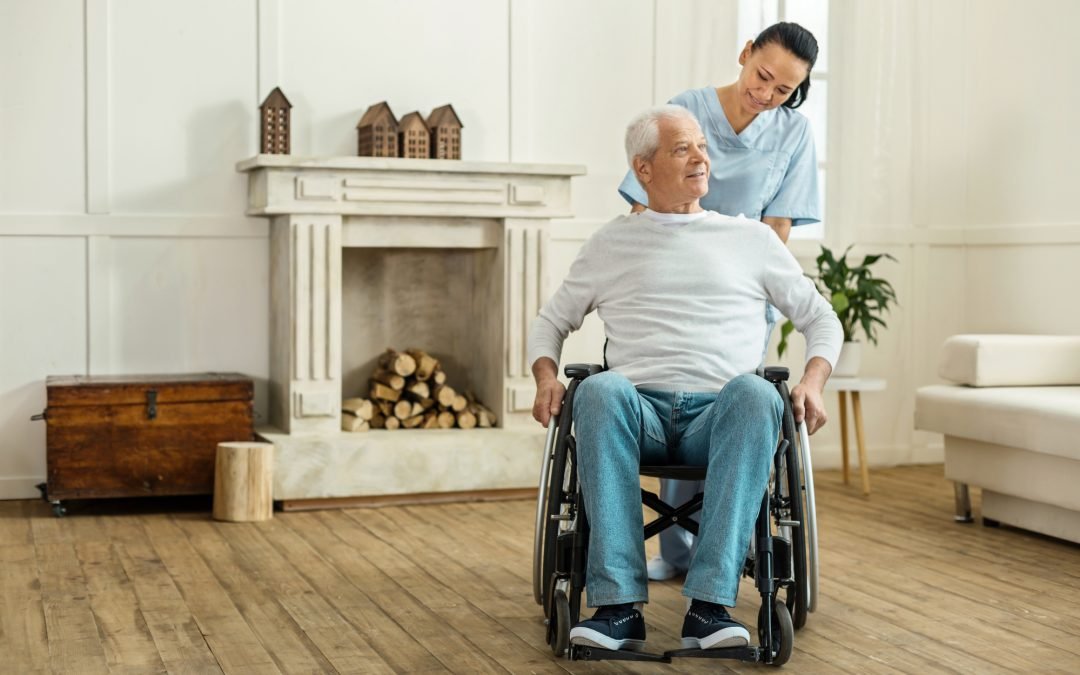Managing stress is essential for live-in caregivers, who provide consistent and compassionate care to seniors needing ongoing support. This article offers practical insights into recognizing stress, exploring self-care methods, and accessing resources to ensure caregivers maintain their mental and physical health. By practicing self-care and implementing stress management techniques, Sacramento live-in caregivers can sustain their well-being and deliver high-quality home care for the seniors they support.
Key Takeaways
- Understand Stress in Caregiving: Recognize common stressors live-in caregivers face and the impact on mental and physical well-being.
- Practice Self-Care Techniques: Adopt effective stress-relief practices, from maintaining a balanced diet to setting personal boundaries in personal care.
- Know When to Seek Support: Learn when to seek additional help or resources to manage the demands of caregiving successfully.
Understanding the Challenge: Why Caregiver Stress is Prevalent for Sacramento Live-In Caregivers
As a live-in caregiver, supporting someone’s daily life can be fulfilling but also demanding. Many seniors, especially those with chronic conditions, limited mobility, or cognitive impairments like dementia, require around-the-clock assistance. This need creates unique stressors for live-in caregivers, who often spend extended hours ensuring their clients’ comfort and safety. Beyond managing the physical demands, caregivers may also face emotional stress from watching seniors experience physical and mental health declines.
- The Physical Impact: Assisting clients with physical tasks, managing medications, and providing support for routine activities such as bathing, dressing, and meal preparation can be physically demanding. Many caregivers experience back pain, fatigue, and other health issues related to the physical aspects of their work.
- The Emotional and Mental Impact: Being a compassionate companion also involves emotional engagement, which can lead to stress. Witnessing clients’ challenges or enduring repetitive behaviors can be draining, especially for caregivers lacking proper emotional outlets or support in their roles as aides.
- The Isolation Factor: Working and living in someone else’s home may lead to social isolation, making caregivers feel disconnected from friends, family, and hobbies.
Tips for Managing Caregiver Stress
1. Prioritize Physical Well-being
Maintaining good physical health helps caregivers stay resilient and energized. Here are ways to focus on physical well-being in the context of personal care:
Regular Exercise: Incorporate simple exercises into daily routines, like stretching, walking, or yoga. Physical activity not only keeps the body fit but also releases endorphins that reduce stress.
Healthy Diet: Eating well-balanced meals improves energy levels, boosts the immune system, and enhances mental alertness, which is vital for caregivers in roles like companion care. It can be easy to skip meals or rely on quick, unhealthy snacks, but prioritizing nutritious food is key to sustained well-being.
Sleep Quality: Many caregivers struggle with sleep due to irregular hours or stress, which can be alleviated by utilizing assisted living resources. Creating a restful nighttime environment, limiting caffeine, and establishing a regular sleep routine can improve sleep quality.
2. Build and Maintain Emotional Resilience
Supporting the emotional side of caregiving is crucial. Managing emotions effectively helps caregivers remain empathetic without feeling drained:
Set Boundaries: Clearly define work and rest periods. Setting boundaries is essential for preserving mental energy. Taking short breaks throughout the day and having downtime each evening can prevent burnout in the demanding field of in-home care.
Express Feelings: Many caregivers benefit from journaling their experiences or sharing them with friends, family, or online support communities. Expressing emotions can be a relief and helps caregivers process daily stresses, especially when supported by companion care.
Practice Mindfulness and Meditation: Deep breathing, meditation, and other mindfulness techniques help caregivers relax, clear their minds, and become more present in their roles in home care. These practices help alleviate feelings of overwhelm and promote emotional balance in the context of hospice care.
3. Seek Social Support
Isolation can increase stress, but staying connected with a support system can ease feelings of loneliness:
Join Support Groups: There are many online and in-person support groups specifically for caregivers. These groups offer a safe space to share experiences, gain advice, and connect with others who understand the caregiving journey.
Stay Connected with Loved Ones: Regular phone or video calls with friends and family provide a mental break and emotional lift. Maintaining these connections reminds caregivers they are not alone.
Access Professional Support if Needed: Speaking with a therapist or counselor can offer additional tools for managing stress and dealing with any complex emotions that arise.
4. Manage the Physical Environment
Creating a positive and organized physical space, including light housekeeping, can make the caregiving role easier to handle.
Declutter and Organize: Keeping the living space organized helps reduce stress and makes caregiving tasks more efficient. It’s easier to find things when everything is in its place, and an organized environment promotes calm.
Personalize the Space: Adding personal touches to a caregiver’s space within the home, such as favorite pictures or comforting items, can make it feel like their own. This small action can help caregivers feel more settled.
5. Take Breaks and Engage in Hobbies
Finding personal joy and engaging in hobbies helps relieve stress and promotes a well-rounded life beyond caregiving:
Enjoy Short Breaks: When possible, take brief breaks for activities like reading, listening to music, or a quick walk outdoors.
Pursue Personal Interests: Set aside time to enjoy hobbies, whether it’s art, gardening, or any activity that brings joy. These interests provide an escape and improve overall happiness.
6. Know When to Seek Help
At times, caregiving responsibilities can be overwhelming. Recognizing when to ask for help is an important aspect of stress management:
Professional Assistance: If possible, arrange for a temporary caregiver or respite care service to relieve you periodically. These breaks are essential for mental and physical rejuvenation.
Talk to Family Members: Family members may be able to step in occasionally, allowing caregivers to recharge. By being open about your needs, you can find additional support from loved ones.
Frequently Asked Questions for Sacramento Live-In Caregivers
- How Do 24-hour In-Home Caregivers in Sacramento manage burnout in senior care?
Live-in caregivers manage burnout by setting boundaries, taking short breaks, and engaging in hobbies related to companionship. Many also find relief in support groups or counseling services, which provide emotional outlets and resources for those in home care.
- What self-care techniques work best for live-in caregivers in senior care?
Effective self-care techniques include regular exercise, maintaining a healthy diet, meditation, and finding time for personal hobbies. Establishing a structured daily routine that includes self-care helps caregivers stay balanced.
- Can Sacramento live-in caregivers provide 24-Hour care for elderly take breaks during their shifts?
Yes, short breaks are recommended to prevent fatigue. Scheduling rest periods during each shift enables caregivers to stay alert and refreshed, ultimately providing better care.
At Apexcare We Prioritize The Well-Being Of All Sacramento Live-In Caregivers
Managing caregiver stress is crucial for sustaining the health and effectiveness of care providers. At ApexCare, we understand the unique demands of live-in caregiving and are here to support both caregivers and families in creating a balanced care environment. If you’re looking for professional support or additional resources, contact ApexCare today at https://apexcare.com/ to learn how we can help.
Terms of Use
This article is intended for educational purposes only and is not professional advice. Readers should consult with a qualified healthcare provider or counselor regarding their specific needs and circumstances in home care.
Providing Home Care in Oak Park, Sacramento, Placer, Yolo, Solano, Contra Costa, San Joaquin, and Stanislaus counties.
Looking for Sacramento live-in caregivers? Our home care solutions provide constant support and peace of mind for both seniors and their families. Contact us today!
# 1 Sacramento Live-In Caregivers
CONTACT US FOR SENIOR CARE in Sacramento, CA




Contact ApexCare Today
Schedule A Callback
Fill out this short form to schedule a callback
Contact Info
Phone Number
(877) 707 9111
Fax Number
Fax: (916) 924-9118
Email Address
care@apexcare.com
Social Media
Current Page:

Visit Our Office
Office Locations
Sacramento
SERVING SACRAMENTO & PLACER COUNTIES
1333 Howe Ave Ste 206, Sacramento, CA 95825
Vacaville
SERVING YOLO & SOLANO COUNTIES
1981 Alamo Dr. Unit B, Vacaville, CA 95687
Concord
SERVING CONTRA COSTA COUNTY
2280 Diamond Blvd. Ste 580, Concord, CA 94520
Stockton
SERVING SAN JOAQUIN COUNTY
1111 W. Robinhood Dr. Ste B, Stockton, CA 95207
Modesto
SERVING STANISLAUS AND MERCED COUNTIES
1508 Coffee Rd, Ste K, Modesto, CA 95355

